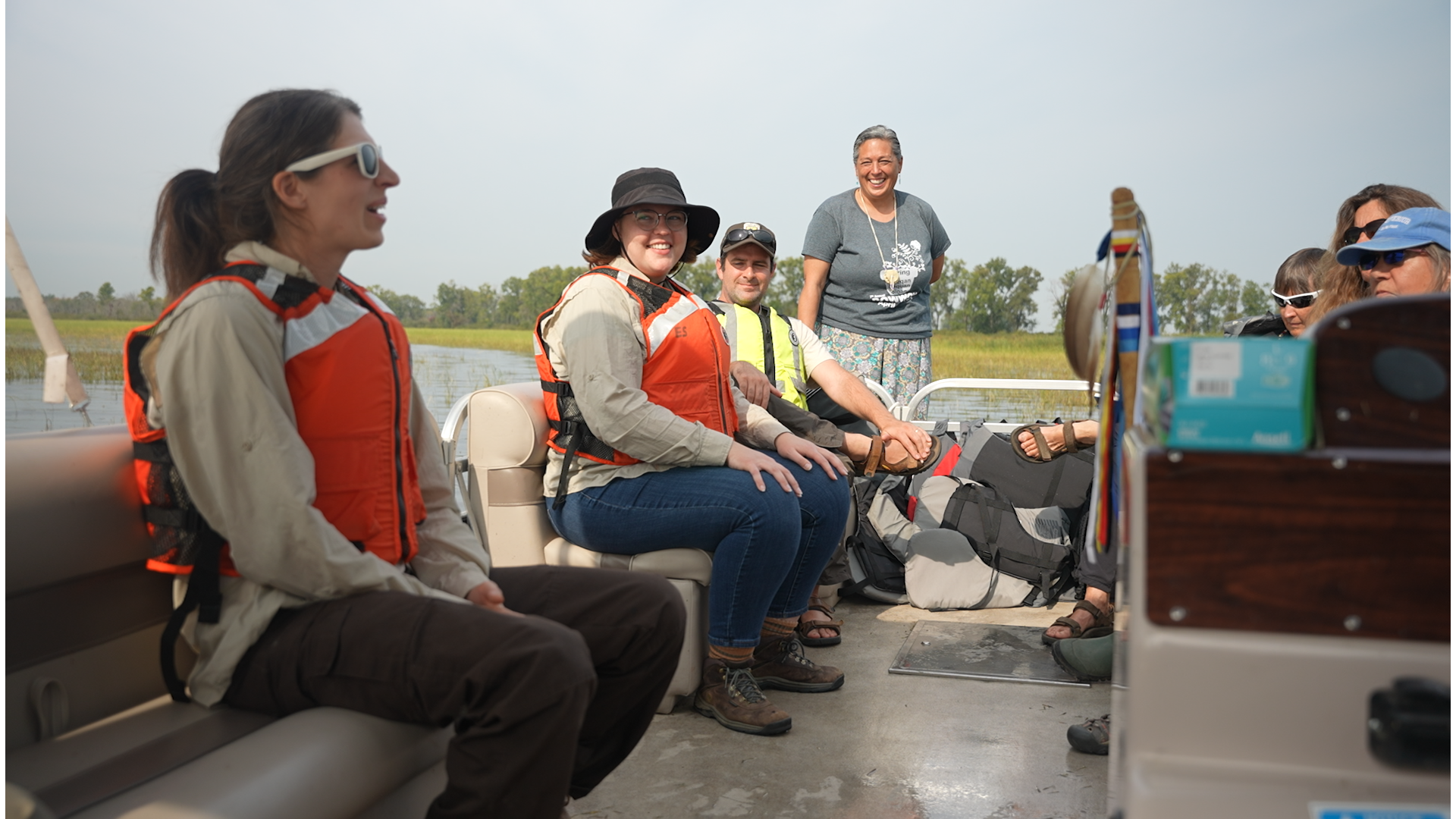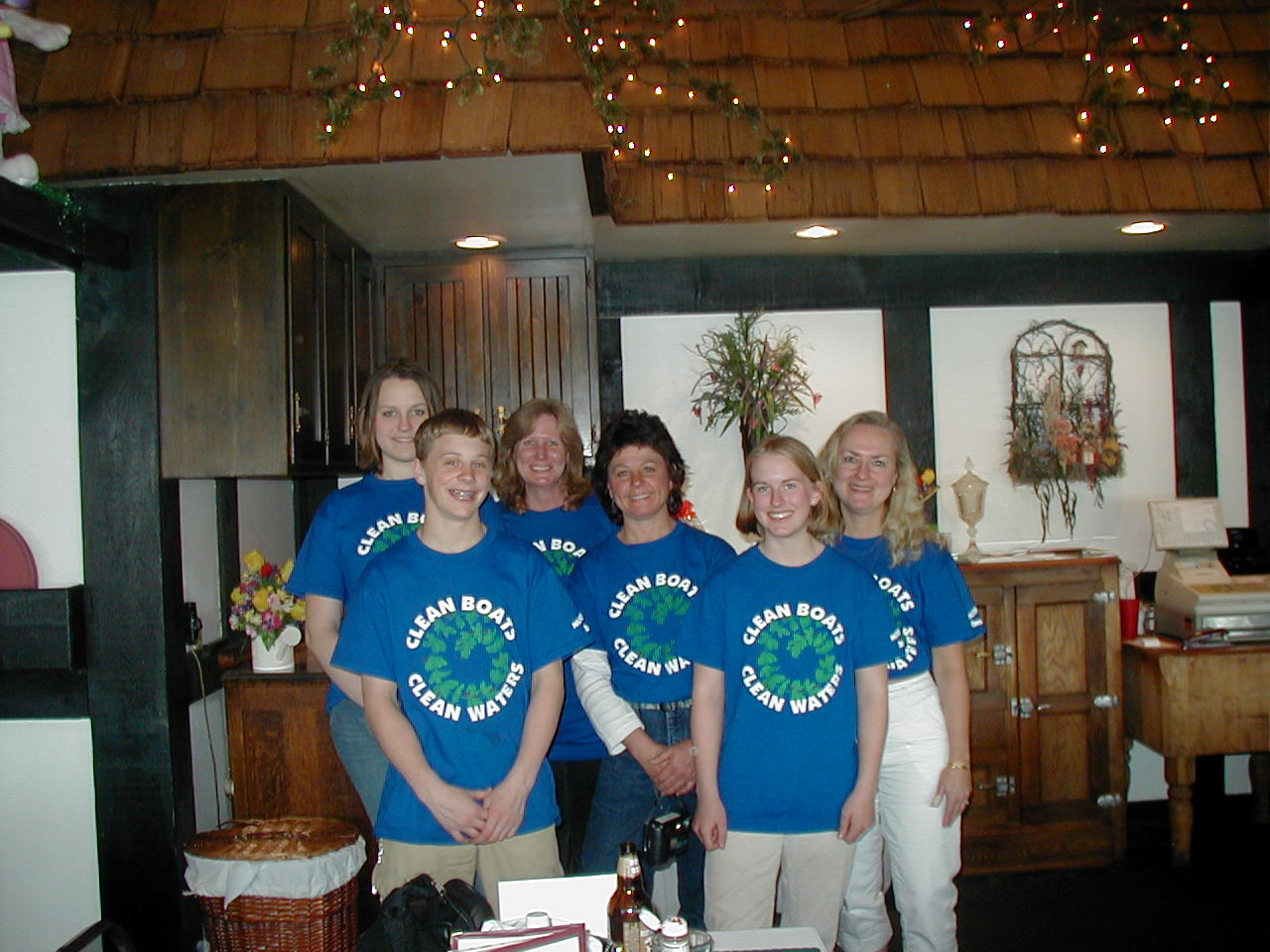Ask just about anyone who’s spent time sports fishing on the Great Lakes if there’s a value generated by their activity, and the force of the “of course!” you get might just be enough to knock you off the dock and into the waters of Lake Michigan.
Ask someone to actually quantify that value, however, and you’re more likely to be met with shifting feet and puzzled silence.
With the support of Wisconsin Sea Grant, Daniel Phaneuf, a professor of applied and agricultural economics at the University of Wisconsin-Madison, is angling to create an economic and behavioral model that can provide a significantly more concrete answer. Over the course of the 2015 fishing season, he’ll be conducting focus groups to survey anglers about the choices they make when they choose to go fishing—how much do they spend? Where do they choose to fish and why? The answers he collects may help resource managers predicting anglers’ behavior if key conditions are altered in the future.
“You often hear that Great Lakes sports fisheries support 14,000 jobs,” said Phaneuf. “That’s important, but that’s not a great way to characterize the economic value. A better way would be to get an answer to the question, ‘What would people pay if they had to pay for it?’”
Phaneuf’s data-gathering efforts will likely focus mostly on Lake Michigan, honing in on three types of fisheries—charter, commercial and private recreational, the latter representing the largest of the three groups. Phaneuf noted that the latter group is also the one that’s least tied to a specific market. “People who fish through private sports clubs tend to just show up,” he said.
Some of the questions Phaneuf will ask will be attitudinal, trying to gauge what’s important to anglers and how they decide where to go—what economists call revealed preference data. Other questions will look to capture the anglers’ stated preferences, potentially allowing for the creation of statistical models that predict where anglers might go, if, say, efforts to control invasive species were stepped up at a certain port or marina.
“What’s most exciting for me is to puzzle out the ways humans interact with the environment and quantify that,” he said. “All of these things we’re talking about have both value and an opportunity cost. It’s not strictly about economic impact, but rather benefits derived by the fishery. “
Titus Seilhemer, Wisconsin Sea Grant’s fisheries extension specialist, said there’s widespread interest among Wisconsin’s fisheries. Seilheimer and Phaneuf both recently attended the 2015 Lake Michigan Fisheries Forum, where Phaneuf spoke to anglers and fisheries managers about his project.
“People throw numbers about the fisheries around all the time, but nobody knows where they’re coming from, said Seilheimer. “It’s important to understand the focus of economy throughout this industry—it’s what’s going to give us a better understanding of the linkages between dollars and cents with some of the management decisions.”
Those linkages could end up being the key finding to come out of the eventual model Phanuef’s project creates.
“The Great Lakes are far from a pristine ecosystem. Most of the recreational opportunities only exist because of human intervention,” he said.
Phaneuf’s referring to things like the extensive stocking and fisheries management that maintains key Great Lakes sports fish populations like salmon and lake trout, as well as efforts to curb pollution and the spread of invasive species. Would, for instance, changing stocking patterns change the choices anglers make about where to fish?
“It’s all about tradeoffs,” he explained. “If there are benefits derived from a fishery, the question becomes, are they on par with the resources required to generate them? To understand benefits, you have to understand behavior. It’s more interesting to understand what drives anglers to make trips, and where and when,” said Phaneuf, who noted that he’s fascinated by projects like this that have what he calls “a real policy impact.”
Phaneuf and a graduate student are already gearing up to conduct the surveys and focus groups, and will look to generate a report and model before the end of the year. Interestingly, Phaneuf has something of a karmic personal connection to the topic: Back when he was earning his PhD in economics at Iowa State, he used data sets from a 1989 Wisconsin Sea Grant project on angling in the Great Lakes as the basis for his dissertation. As a lifelong fisherman, he can appreciate the confluence of coming full circle and adding to the knowledge base..
“I like that my research interests overlap with my recreational interests,” he said.





